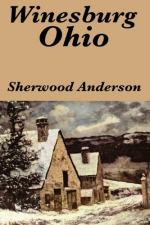|
This section contains 3,387 words (approx. 12 pages at 300 words per page) |

|
SOURCE: MacGowan, Christopher. “The Heritage of the Fathers in Sherwood Anderson's ‘The Man Who Became a Woman.’” Journal of the Short Story in English 21 (autumn 1993): 29-37.
In the following essay, MacGowan explores the significance of paternity and patriarchy to “The Man Who Became a Woman.”
Sherwood Anderson's short story “The Man Who Became a Woman,” from his 1923 collection Horses and Men, is often acknowledged to be one of his finest successes in the form. However, analysis of the story has usually focused upon the themes—central to much of Anderson's earlier work—of adolescence, sexuality, and sexual roles. While these are important in the story, what has been missed is the degree to which these concerns are integrated into a tale that is a story about story-telling and story tellers, and the attenuated promise of both in an America oppressed by its patriarchal, religious, and industrial heritage.
In...
|
This section contains 3,387 words (approx. 12 pages at 300 words per page) |

|


